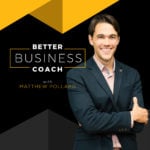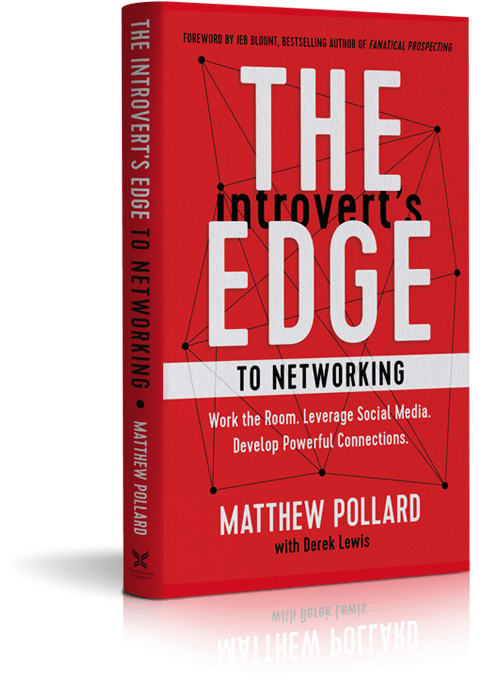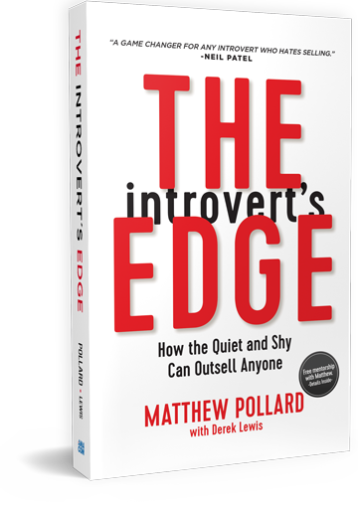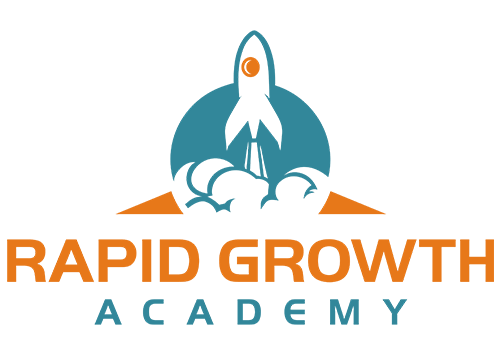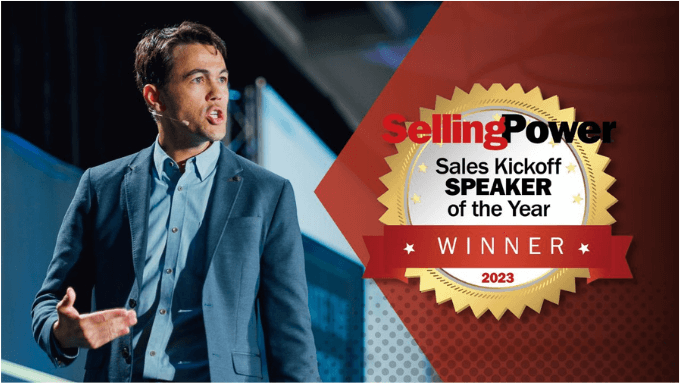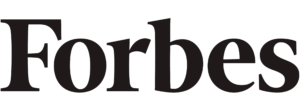Imagine this: You’re at a company event, the lights dim, and the much-anticipated keynote speaker takes the stage. Within minutes, though, it’s clear something’s amiss. The speaker just isn’t resonating with your audience. They fumble through slides, their jokes fall flat, and the powerful message you hoped for is lost in a sea of disengaged faces.
This scenario, a nightmare to event planners everywhere, underscores the monumental importance of finding a keynote speaker who’s exactly right for your event. Professional speakers are, after all, a huge part of your event’s success, wielding the power to set the tone and leave a real impact on the audience.
To help you make your event all that you hope for, we offer this roadmap to securing the ideal keynote speaker: One who will not just fill a slot on the agenda, but transform your event into an unforgettable experience!
Understanding the True Role of Keynote Speakers
The role of a guest speaker transcends far beyond their 90 minutes on stage. They create a ripple effect that can profoundly influence a company for months or even years to come. In fact, the ideal speaker is one who weaves a narrative so compelling that it becomes a catalyst for transformative company change. This is the essence of what a great keynote speaker brings to the table.
Fresh Perspectives and Cultural Shifts
Moreover, the best keynote speakers bring a fresh perspective, a novel viewpoint that challenges the status quo. For instance, let’s say a speaker who introduces the concept of “radical openness” in a traditionally conservative corporate environment. By sharing stories of companies that thrived through embracing transparency and vulnerability, the speaker provides insights and challenges attendees to rethink their approach to leadership and collaboration. This new angle could spark a cultural shift within the organization, encouraging more open communication and innovative thinking, which in turn lead to significant long-term benefits.
Long-Term Influence on Company Bottom Line
Perhaps most important, the right speaker can dramatically impact your company’s bottom line. A motivating speech can lead to increased team morale, innovative ideas, efficiency improvements, or new business strategies.
This doesn’t apply only to straightforwardly motivational speakers, either. You may choose to hire an inspirational speaker focused on sales strategies, business processes, business storytelling, or any other facet of your operations that could use a little boost.
We encourage you to consider these broader implications when hiring a speaker. It’s not just about an engaging presentation or a well-respected expert; that should be a given. It’s really about finding someone who can be the impetus for lasting change, who can inspire your team to reach new heights, and who can help cement your company’s success, whether in person or as a virtual speaker.
In short, your keynote speaker selection should focus on long-term and wide-ranging impact, not just on one successful event.
Establishing Your Event Goals
Before embarking on the process of selecting the perfect keynote speaker, be sure you have established clear goals for your event. Ask yourself, What is the desired outcome of this keynote speech? Are you driving sales and business growth? Addressing industry challenges? Promoting collaboration and relationship building?
Working with your outcome as a starting point is a great way to keep your search focused and relevant.
Aligning with Company’s Broader Objectives
Once you have a firm handle on the goals for the event itself, think about the bigger picture. Keeping in mind the longer-term impacts of top keynote speakers, what are some other, more specific goals? These might include increased sales, greater employee retention, the implementation of radical change, or a dramatic perspective shift.
Be sure that the particular speaker you choose is one who understands your company’s broader objectives, so they can align their message with the event’s theme and goals. Here’s how you can start that process:
Identifying Your Audience
The first step in selecting an in-person or virtual keynote speaker is to gain a deep understanding of your audience. This means going beyond mere demographics to grasp the unique characteristics, interests, and challenges of those who will be attending your event.
Audience Analysis
Consider a hypothetical scenario: Your company, TechInnovate, a mid-sized software development firm, is organizing an annual conference. Your attendees are primarily your own employees, ranging from young tech enthusiasts to seasoned software engineers, along with a sprinkling of industry partners and stakeholders.
- Survey Your Audience: Before the event, conduct a survey among potential attendees. Ask what topics they’re interested in, what challenges they’re currently facing in their roles, and what they hope to gain from the event. This will provide valuable insights into the type of speaker and content that will be most beneficial.
- Analyze Past Events: Look at feedback from previous events. Which topics resonated most with your audience? Did certain styles of speaking (inspirational, educational, humorous) receive more positive responses?
- Understand the Industry Context: What are the current trends and challenges in the software development industry? Is there a recent technological breakthrough or a shift in market dynamics? Consider a keynote speaker who can address these relevant topics and their impact on your organization.
- Align with Company Objectives: What are the broader goals of your company right now? For instance, if TechInnovate is focusing on innovation and creativity to stay ahead in a competitive market, consider a speaker who can inspire and provide insights on fostering a culture of innovation.
- Diversity and Inclusivity: Ensure that the speaker can connect with a diverse audience. This means considering factors like cultural background, gender, age, and professional experience. A speaker who can resonate across these diverse groups will have a more significant impact.
- Customization Capabilities: Look for speakers who are willing to tailor their content to your audience’s specific needs. A speaker who can incorporate real examples from your industry, or even your company, will be much more engaging and relevant.
By understanding your audience at this granular level, you can choose a keynote speaker who is a perfect fit for your event’s unique audience and goals.
Also keep in mind that many keynote speakers can help you with ensuring their central message aligns with exactly what you need. These are all things you can discuss in the interview and selection process, which we’ll cover in more depth later in this article.
Clarifying the Event Theme
The theme of your event shapes everything from the decor, to the choice of speaker, to the agenda, and more. Let’s continue using our hypothetical example of TechInnovate to show how you can crystallize your theme:
- Brainstorming Session: Gather a diverse group from your company for a brainstorming session. Encourage ideas that reflect both your company’s current focus and the broader industry trends. Is TechInnovate exploring AI advancements or sustainable software solutions? Use these sessions to find a theme that resonates with your corporate identity and aspirations.
- Reflect on Company Milestones: What has TechInnovate achieved recently? Are you celebrating an anniversary, launching a new product, or expanding into new markets? Any of these milestones can be a source of inspiration for your theme.
- Industry Trends and Challenges: Consider the broader landscape of the software development industry. Themes that address current challenges or emerging trends can be particularly engaging and relevant. This could be anything from “Embracing Remote Work Innovations” to “The Future of AI in Software Development.”
- Consider Audience Needs and Interests: Your theme should not only reflect TechInnovate’s objectives but also resonate with your audience. What would they find insightful, inspiring, or educational?
- Flexibility: Choose a theme that allows your keynote speaker to weave in their expertise and stories. A good theme provides a framework, while at the same time offering enough flexibility for competent speakers to add their unique touch.
- Speaker’s Insight: If you’re struggling to finalize a theme, experienced speakers can often offer valuable insights. Ask your candidates for insights and see what they come up with!
Finding A Keynote Speaker
It’s finally time to find potential keynote speakers! This can be done through professional networks and recommendations, as well as through speakers bureaus. Be sure to initiate the search well in advance, considering the high demand for quality keynote speakers, especially those with established brands. These top-tier speakers are typically booked out months in advance.
Leveraging Professional Networks
You and your colleagues no doubt have a wide network of professionals, many of whom will have their own experience in finding and hiring a keynote speaker. Don’t be afraid to reach out and benefit from their experience.
On top of that, you can also take advantage of some simple searches and tools to narrow down your list.
Here are a few tips on effectively using platforms like LinkedIn, professional associations, and clubs to find your ideal speaker:
Targeted LinkedIn Searches:
- Use specific keywords related to your event theme and industry in the LinkedIn search bar.
- Look at the profiles of speakers who frequently post content related to your theme or who have experience speaking at similar events.
- Check their recommendations and endorsements for insights into their expertise and speaking abilities.
Engage in Relevant LinkedIn Groups:
- Join LinkedIn groups specific to your industry or event theme.
- Participate in discussions and ask for speaker recommendations.
- Post about your event and specify the kind of speaker you’re looking for to attract potential candidates or referrals.
Use Professional Associations and Clubs:
- Reach out to industry associations or professional clubs and ask for speaker recommendations. Many associations have a speakers’ roster or can recommend members known for their speaking abilities.
Leverage Referral Networks:
- Ask your contacts for referrals to speakers they’ve found impactful. Personal endorsements can often lead to discovering speakers who may not have a large online presence but are excellent in delivering presentations.
Research Industry Events:
- Research or even attend other industry conferences and events to scout for professional speakers. Note down speakers who impress you and reach out to them to discuss your event.
Speaker Showcases:
- Look out for speaker showcases, whether in-person or virtual, where multiple speakers present in one event. It’s an excellent way to evaluate several potential speakers in a short period.
Social Media Engagement:
- Follow potential speakers on social media to get a sense of their style and the content they share.
- Engage with their content to build a connection before reaching out.
The key is to be proactive and specific about what you’re looking for. Leverage your networks effectively, and you’ll go a long way towards finding a speaker who aligns with your event’s theme, resonates with your audience, and brings the desired impact to your event.
Using Speakers’ Bureaus
A speakers’ bureau, such as espeakers.com or BigSpeak, is an organization that can provide assistance in identifying the ideal speaker for your event. They offer access to a diverse range of speakers, making it a potentially one-stop shop for event planners.
Bureaus also have extensive networks and can provide services such as:
- Locating last-minute replacements for speakers if necessary
- Negotiating speaker fees and contracts
- Coordinating travel and accommodations for speakers
- Providing promotional materials and information about speakers
- Offering guidance and support throughout the event planning process
However, while bureaus offer valuable services and access to a wide array of speakers, there are certain drawbacks to consider.
First, some bureaus may have a limited selection of speakers within certain niche topics, potentially restricting your choices to more generalist speakers. They also often work with established speakers, which could mean higher fees compared to directly negotiating with speakers who are less well-known but equally capable.
Additionally, bureaus may prioritize speakers with whom they have longstanding relationships, which might not always align perfectly with your specific event needs.
Finally, working through a bureau adds another layer of communication, which can sometimes lead to delays or misunderstandings in the planning process. You can weigh these factors against the convenience and range of services a bureau provides to determine the best approach for your event.
Evaluating and Shortlisting Candidates
Ok, by this stage, you’ve got a solid handle on your event theme and goals, as well as the needs and expectations of your audience, and you’ve gathered an initial list of potential keynote speakers.
Now it’s time to evaluate them and create your shortlist of top candidates. Follow the simple steps below to ensure you’re whittling down to the best of the bunch:
1. Review Speaking Experience:
- Examine past speaking engagements of your candidates. Look for testimonials, ratings, or feedback from previous events.
- Watch videos of their past presentations to gauge their speaking style, audience engagement, and content delivery.
2. Ensure a Match with Event Goals and Theme:
- Confirm that each candidate’s expertise and topics align with your event’s goals and theme for maximum impact.
- Consider their style and tone – does it match the atmosphere you want to create? An inspirational speaker might be ideal for a motivational event, while a more data-driven speaker could be better for an educational seminar.
3. Assess Compatibility with Event Format:
- Consider the layout and format of your event. Can the speaker adapt to different formats, be it a large conference hall or an intimate seminar room?
- Discuss with potential speakers their comfort and experience with the technical aspects of your event, such as virtual platforms for online events or specific audio-visual setups.
4. Evaluate Audience Connection:
- Consider how well each speaker might connect with your audience. Does the speaker have experience addressing similar groups or industries?
- Look for speakers who can tailor their presentations to your specific audience, making their message more relevant and engaging.
5. Check Availability and Logistical Needs:
- Confirm the speakers’ availability for your event dates.
- Discuss any specific logistical requirements they might have, such as special equipment or travel arrangements.
The Art of Interviewing Keynote Speakers
Experienced keynote speakers will embrace the opportunity to ensure that they’re a good fit and their keynote addresses your needs. They get it – your event matters, and they’re ready to have an in-depth conversation about aligning their message with your vision.
On the flip side, a speaker’s reluctance to engage in a discovery call should raise an eyebrow, as it’s a sign of their overall commitment to your event’s success. A speaker who’s genuinely interested in the long-term outcome of your event will show it right from these initial interactions.
If a potential speaker is unwilling to get on the phone with you for a discovery call or interview, consider it a red flag and move on to the next person on your shortlist.
Preparing Insightful Questions
Now that you’ve got your list of people to speak to, what do you ask them?
The following questions are designed to help you assess a speaker’s experience, content relevance, audience engagement ability, and logistical requirements, all of which will quickly help you determine their suitability for your event.
1. Background and Experience
- Can you tell us about your experience as a speaker and the topics you typically cover?
- What are some notable events or organizations you’ve spoken at in the past?
2. Content and Relevance
- How does your expertise align with the theme of our event?
- Can you provide an overview of what your typical keynote speeches entail?
3. Audience Engagement
- How do you engage and interact with your audience during a presentation?
- Can you give an example of how you’ve tailored your content to meet specific audience needs?
4. Adaptability and Flexibility
- Have you had experience speaking at events similar to ours in terms of size, format, or industry?
- How do you adapt your speaking approach for different types of events or audiences?
5. Preparation Process
- What does your preparation process look like for a keynote speech, and how much involvement is required from our side?
- How do you incorporate the event’s goals and themes into your presentation?
6. Success Stories and Challenges
- Can you share a particularly successful or challenging speaking engagement and how you handled it?
- What feedback do you typically receive from event organizers and audiences? Can you provide testimonials?
7. Logistics and Technical Requirements
- What are your technical requirements for speaking engagements?
- Are there any logistical aspects we should be aware of in advance?
8. Professional Approach
- How do you handle unexpected situations or changes during an event?
- What do you consider the key factors for a successful keynote speech?
9. Post-Event Engagement
- Do you offer any follow-up activities or materials post-event, such as Q&A sessions, workshops, or handouts?
- Do you help with implementing the strategies and techniques you teach?
- How do you measure the impact of your speech on the audience?
10. Contractual and Financial Details
- What are your fees and what do they include?
- What is your cancellation policy?
Negotiating Terms and Finalizing the Deal
Speaker fees are determined based on a variety of factors, including the keynote speaker’s notoriety and reputation, the nature of the event, and the number of talks the speaker will deliver. Additionally, there may be further expenses involved, such as travel costs, accommodation, and any specific needs or requests put forth by the speaker.
Fee Structure Elements
The fee structure for a keynote speaker is shaped by factors such as the speaker’s experience and reputation. It should encompass:
- Base fee
- Deposit policy
- Travel expenses
- Accommodation expenses
- Stipend expenses
- Additional AV equipment costs
Keep in mind that the negotiability of speaker rates can be influenced by factors such as the event’s location, type, the speaker’s availability, and their openness to engage in negotiations. It’s always worth asking if they provide a discounted fee for multiple presentations or keynote add-ons such as a breakout session.
Preparing for Success
Once you’ve hired a speaker who understands your event’s objectives and is ready to do whatever it takes to help you meet your goals, there are still a few things to do to ensure everything goes smoothly.
Sharing Event Details with Your Selected Speaker
This may seem like a no-brainer, but you’d be surprised at the number of event managers who neglect this essential step. Details like the full agenda, nearby hotels, tricky parking situations, and any other logistical nuances can make your speaker’s life much easier and set everyone up for an amazing event.
Rehearsing and Fine-Tuning
Any speaker worth their salt will rehearse for your event, but it’s still worth mentioning, to make your expectations clear.
Encourage the speaker to conduct a dry run, preferably in the actual venue or a simulated environment for virtual events.
And leading up to the presentation itself, technical checks, including audio-visual setups and connectivity tests, are a must in order to prevent unforeseen glitches.
Monitoring and Measuring Impact
You’ve put a whole lot of time and energy into finding a great speaker, planning an event that leaves a lasting impression, and hopefully setting it off without a hitch.
But it’s not over yet! Now it’s time to collect feedback and analyze engagement metrics, which will allow you to evaluate the speaker’s effectiveness and guide future speaker selections.
Gathering Attendee Feedback
One simple method is to survey the audience to provide insights into how well the keynote was received and the type of keynote speakers that resonate with them.
Consider the questions below as a starting point for creating your survey:
- How would you rate your overall experience at the event?
- How would you rate the keynote speaker’s presentation?
- What did you appreciate most about the speaker’s presentation?
- How relevant did you find the content of the event to your interests or professional needs?
- How engaged did you feel during the event?
- Were there enough opportunities for interaction and participation?
- What are the key takeaways or learnings you gained from the event?
- Has the event influenced your perspective or approach to your work or industry?
- How would you rate the organization and logistics of the event?
- What topics or speakers would you like to see at future events?
- Would you attend another event organized by us in the future?
- Do you have any additional comments or suggestions to improve future events?
These questions cover various aspects of the event experience, from the speaker’s performance to the overall organization, helping you gather valuable feedback for future improvements.
Feel free to add to them to get more specific.
Analyzing Engagement Metrics
Engagement metrics provide a quantitative measure of the speaker’s success. Analyze data such as session attendance rates, duration of active engagement, and participation in Q&A sessions. Social media engagement, like shares, comments, and mentions related to the keynote, also offers valuable insights. These metrics not only reflect the speaker’s ability to captivate the audience but also indicate the relevance and resonance of the content presented.
Impact Measurement and ROI Analysis
To assess the long-term impact and ROI, evaluate changes in employee behavior, productivity, or sales trends post-event. For instance, if a speaker focused on innovative teamwork strategies, observe if there’s an increase in collaborative projects or a reduction in team conflict incidents.
Correlate these changes with the speaker’s message to determine the keynote’s effectiveness in driving tangible results and contributing to the company’s strategic goals.
Conclusion
So, there you have it. Choosing the right keynote speaker is a bit like putting together a puzzle – it’s all about finding the perfect fit. It’s not just about picking someone who’s got a great reputation or a few good stories. It’s deeper than that.
Think about your audience and what’s going to click with them, what’s going to stick in their minds long after the event is over. The right words from the right person can spark ideas, shift perspectives, and maybe even change the way we see our work and each other.
So, take your time, think it through, and go find that speaker who’s not just going to talk at your event, but truly speak to your people. Good luck!






